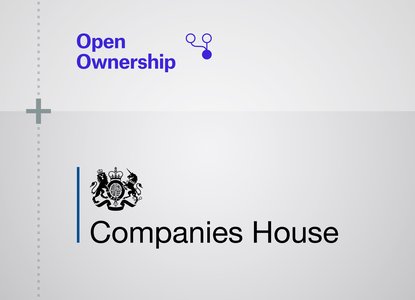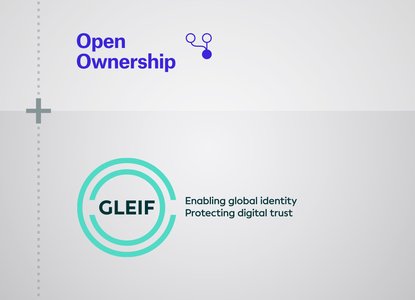Five areas where beneficial ownership transparency is key in addressing Coronavirus
The economic, social and political repercussions of the COVID-19 pandemic will be with us for years, if not decades. It is already clear that the impact of these changes will extend well beyond the immediate public health crisis. Pre-existing weaknesses and issues in global governance have become further exacerbated during the crisis. Beneficial ownership opacity – not knowing who owns and controls businesses – is a profound weak point that many countries are taking with them as they confront the pandemic.
As governments around the world mobilise funds to meet the public health crisis, the economic resilience and good governance imperatives for publishing the owners of companies are becoming stronger and more urgent. With trillions of dollars being directed to mitigate the crisis, much focus is understandably on enabling emergency procurement of immediate healthcare supplies and shoring up jobs, livelihoods and key supply chains.
However, by doing so, analysis shows that key checks and balances are being eased or breached, increasing the risk of money being lost to fraud and corruption, or otherwise diverted away from supporting those most in need. Just as the pandemic has exacerbated pre-existing weaknesses in health systems, the impact of pre-existing governance issues has also been heightened. Last week’s OECD anti-corruption and COVID-19 event underscored the increased corruption risks during the pandemic, with the chair of the OECD anti-bribery working group describing current conditions as “a paradise for corruption”. We cannot afford to wait until the immediate public health crisis has abated before tackling the corresponding crisis emerging in governance.
Open Ownership recently held an expert panel with leading representatives from government, industry, civil society, academia and the media to discuss how beneficial ownership transparency cuts across both short term emergency response and longer term economic recovery.
Five areas were identified where beneficial ownership transparency is key:
- Procurement: Governments are undertaking extensive emergency public procurement to meet public health needs, and are facing global shortages of key supplies such as PPE. Without adequate due diligence, governments can fall prey to fraud and counterfeiting schemes, as unscrupulous actors seek to take advantage of global shortages to meet urgent needs.
- Ownership transparency means that governments can quickly perform minimal standards of due diligence on companies they are buying goods and services from. As well as reducing immediate risk of corruption, it provides a valuable trail for future audit.
- Tracking financial assistance: Many trillions of dollars are being pumped into economies around the world. A significant amount of this will go to companies that are receiving financial support as part of economic stimulus and wage protection packages. Without effective tracking, funds are at risk of diversion through corruption or mismanagement.
- Beneficial ownership transparency gives governments valuable information about who is ultimately benefiting from economic stimulus support provided to companies, and can be used to target support where need is greatest.
- Supporting domestic economy: In addition to guarding against corruption and mismanagement, governments face the challenge of ensuring that financial support to companies strengthens the domestic economy; this has led countries such as Canada, Denmark and France to refuse financial support to companies based in tax havens.
- Ownership transparency can provide governments valuable information to understand the ownership structures of companies, and where different companies in the ownership chain are based.
- Attracting investment: As attention turns to promoting economic recovery, governments will seek to position their countries to attract inward investment. Lack of beneficial ownership transparency is recognised as a key risk factor for businesses deciding whether to invest.
- Ownership transparency means that everyone in the market can quickly understand who they are really trading with, reducing risk to legitimate businesses and assisting inward investment that can support economic recovery.
- Building trust in a time of crisis: In democracies across the world, governments need citizens to have sufficient trust in their handling of the pandemic to support compliance with measures such as lockdowns and social distancing. Lack of ownership transparency means that citizens are less able to know who benefits from government funds, hindering public trust.
- Ownership transparency is part of a suite of transparency and accountability measures that are important for restoring and retaining public trust in governments, and that governments can demonstrate that taxpayer funds are being spent efficiently in response to the pandemic.
As the impact of the pandemic continues to unfold, we have been consulting with partners to identify how Open Ownership can best respond, and testing out new ways of working. Going forward, our approach is two-fold: firstly, in response to demand from governments and civil society actors, we will continue to support beneficial ownership reforms where they are already underway. In addition, we will support countries making commitments to beneficial ownership transparency as part of their COVID-19 response.
Secondly, we are responding to the heightened risks of beneficial ownership opacity in public procurement and delivery of economic stimulus packages, by providing guidance and easy to deploy tools to increase the availability and use of beneficial ownership data in these contexts.
To help us meet these delivery needs, we have started to simplify our guidance and tools. These are framed around the recently launched Open Ownership Principles. The OO Principles define what good beneficial ownership transparency looks like in practice, distilling down the research and analysis we have conducted over the last three years.
The Principles will guide our support to governments to generate and use beneficial ownership data to address the wide range of integrity and governance challenges we face in both the short and long term as the world navigates the COVID-19 pandemic. In the language of the IMF’s latest Fiscal Monitor, governments should “do what it takes” to deliver economic support, “but keep the receipts” – disclosing who benefits from contracts and financial support to companies is critical to ensuring accountability in countries’ responses to the pandemic.
Related articles and publications
Publication type
News article


